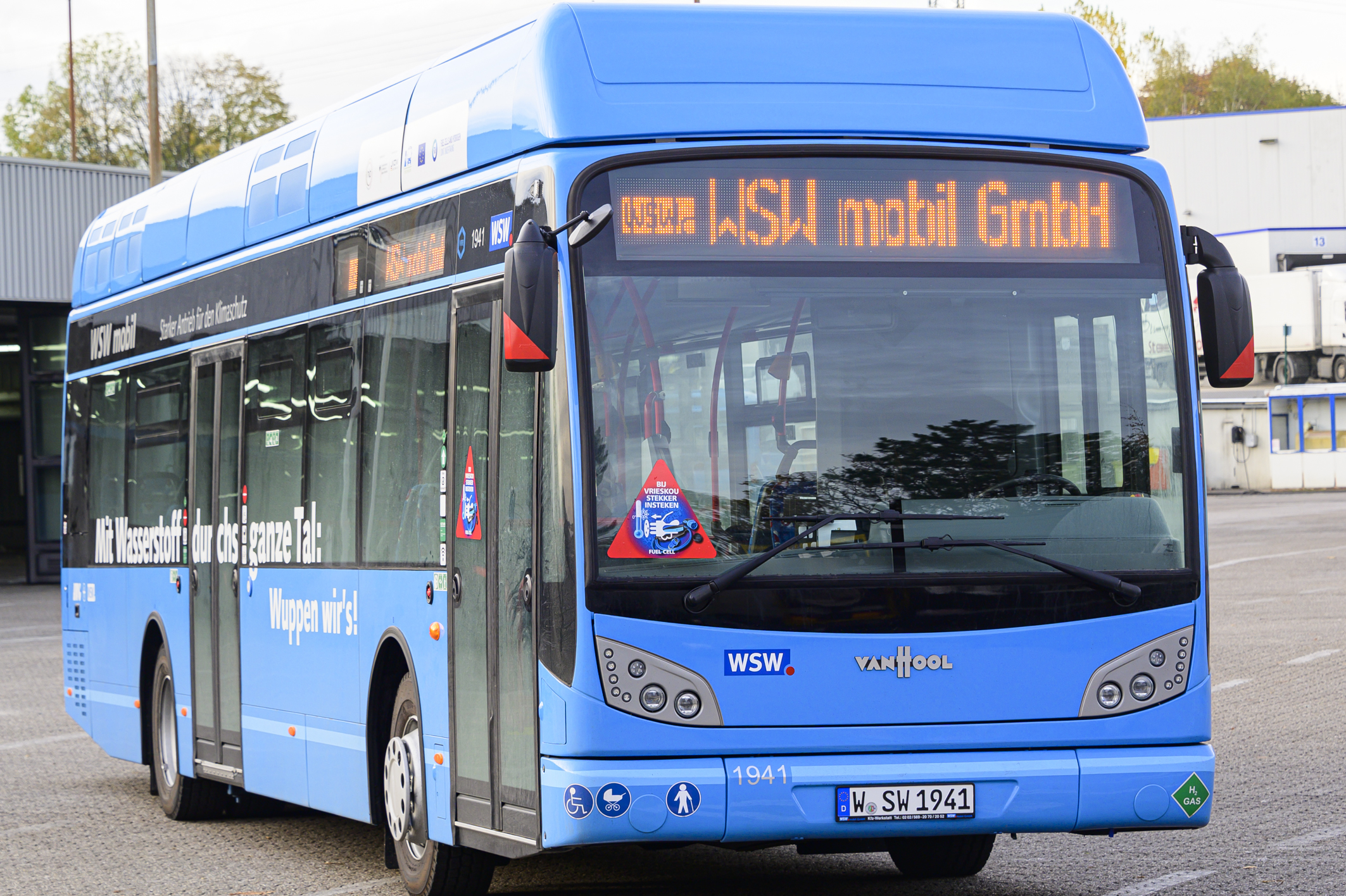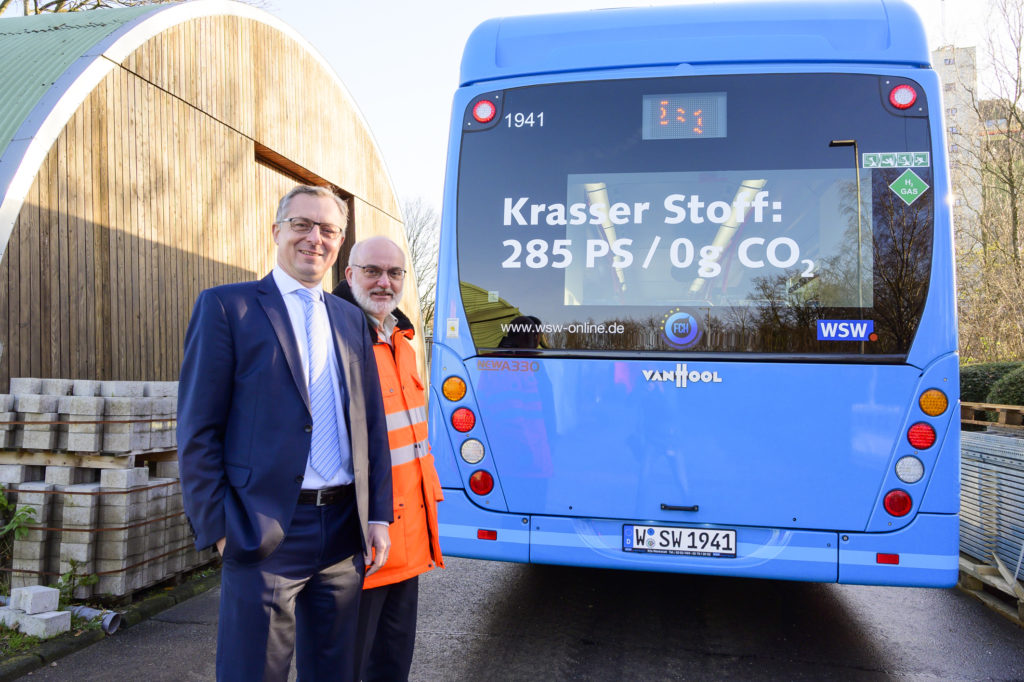
The entire bus fleet and the hydrogen plant are to be ready for use in February.
The Wuppertal public utility company has received the first of ten fuel cell buses. The next five hydrogen-powered vehicles from Van Hool are expected by WSW in January and the rest in February. In the coming year, they will also be used in regular services. It is still not clear on which routes they will be traveling.
The two-axle buses are stationed at the Nextebreck bus depot. There, the WSW retrofitted the workshops for the maintenance of the electric vehicles and trained the workshop personnel accordingly. The refueling system is currently being built at the AWG waste-to-energy plant. There, WSW and AWG produce the hydrogen themselves in an electrolyser using electricity from waste incineration. The plant is scheduled to go into operation in February. In the meantime, the WSW can use a refueling facility in Düsseldorf. The entire project “H2-W” is funded by the EU.

By using the ten fuel cell buses, almost 700 tons of CO2 can be saved per year compared to diesel buses.
“With the hydrogen project, we are making public transport in Wuppertal more environmentally friendly and reducing pollutant emissions. We benefit from the group network with the AWG, ”says WSW mobil managing director Ulrich Jaeger. AWG and WSW have been awarded the Stadtwerke Award this year for the project, which combines waste disposal, power generation and public transport.
By using the ten fuel cell buses, almost 700 tons of CO2 can be saved per year compared to diesel buses.
The fuel cell buses offer space for 75 passengers. The 12-meter-long vehicles weigh 14 tons. They are equipped with an 85-kilowatt fuel cell and a lithium titanate oxide battery. The maximum alternating power is 210 kilowatts. The cost per vehicle is around 650,000 euros.
The plant for hydrogen production has an output of 1 megawatt. With a storage volume of 425 kilograms of hydrogen, it is designed for refueling the ten fuel cell buses. WSW and AWG use inexpensive electricity from their own waste-to-energy plant to keep fuel costs for the electric bus fleet low. Hydrogen production is to run especially when high electricity prices from waste incineration cannot be achieved. Then own consumption is more economical. Work on the infrastructure for hydrogen production and refueling is progressing rapidly. All components except the compressors have already been delivered and are currently being assembled. The first load tests of the electrolyzer can already take place.
The total costs for the hydrogen project amount to 12 million euros, of which 5.5 million euros are for the construction of the hydrogen production plant and 6.5 million euros for the purchase of the vehicles.
The hydrogen project “H2W” is supported by the EU funding programs JIVE, MEHRLIN and JIVE2, the funding program of the federal government NIP2 and the state of North Rhine-Westphalia with VRR funds. The total funding amounts to 6.5 million euros.
Read the most up to date Fuel Cell and Hydrogen Industry news at FuelCellsWorks




